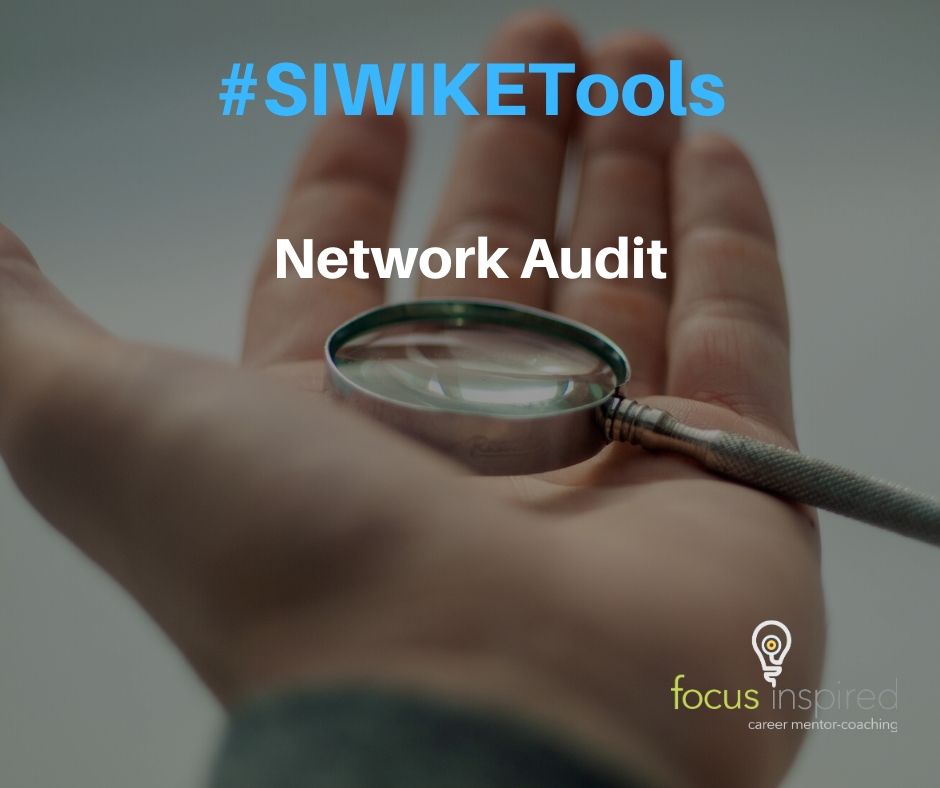
SIWIKE Tools: Network audit
You’re richer than you think! That’s the slogan of one of the big banks in Canada. Which also applies to your network.
Thinking about all of the people that you know and regularly interact with.
Family: while you hopefully know what your immediate family does, you might not know in detail. If you do know in detail then you might want to look at your extended family. Uncles, aunts, cousins and other distant relatives. Do your family members also have friends that might work at organizations that you might be interested in? Often times communicating with them cannot open up new avenues especially compared to them not knowing what you’re looking for. Your family tree or some of the connections to your family tree might have more interesting connections than you think.
Friends: Depending where your circle of friends comes from, Work might not be a common topic of discussion. If it isn’t then you’ll want to explore and understand what they do, what their family and connections might do, and definitely share but you might be looking for. You never know when someone that you hang out with readily could have a connection with an organization you’d want to join but wouldn’t necessarily volunteer it unless specifically asked.
Classmates: if you don’t consider them amongst your friend group, classmates that are acquaintances can still be helpful in your network. Often times this year I consider the giving and helping person and that makes it all easier as you get to know that person and potentially find out that one of their connections could be helpful for you.
Coworkers: you might not be comfortable talking about different opportunities with coworkers, however for those that you are, sharing areas that you’re interested in getting into so that they are away and exploring what the people in their networks do you, can be a great source of connections.
Acquaintances: these could be from many walks of life from people that you made pass by at the gym, on your commute, at your various interest groups, at your local community or religious gathering, or any number of other events. You haven’t built that strong of a connection with them which keeps them as acquaintances and learning more about them could help them develop into a potential friend, colleague, or other relationship. And with a strong enough connection then you might open yourself up to all of their connections as well.
Seniority: as you learn about those in your connection network, you might want to consider where they sit on various seniority levels. Are they someone at the entry-level, middle-management, senior or executive leadership rules? You should take a look at seeing whether or not you can round out your network with people at all levels. If you are at the lower levels yourself, you might only be able to reach people a few levels above you. And if you are at the highest levels then you will still also want to connect with people at the lowest levels. you don’t necessarily want to restrict by seniority as you never know who might be helpful, you just want to consider having a good breadth of folks at different levels. If you know too many junior, mid-level, senior-level resources and you might be better off with a more balanced set of connections.
Diversity: not just in terms of gender, potentially also based on industry, mindset, other professionally related aspects. Connecting with people outside of your usual circles can be super beneficial as it can provide different perspectives and open yourself to different sets of opportunities.
At the end of the day, take the time to do a high-level network audit to see who is in your network and where it might benefit you to build more relationships and meaningful connections.
Follow:Share: